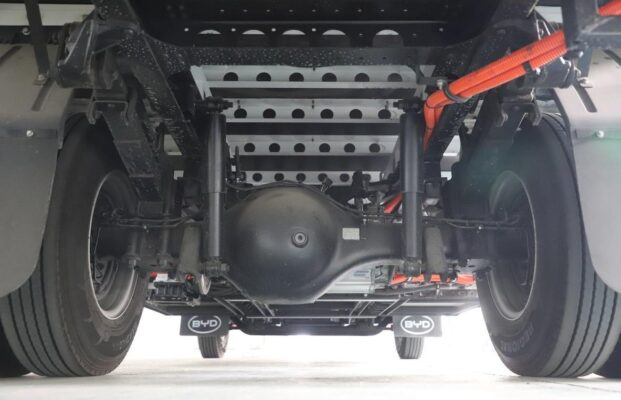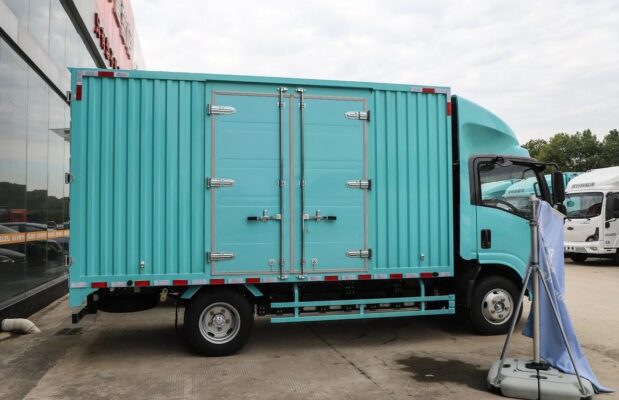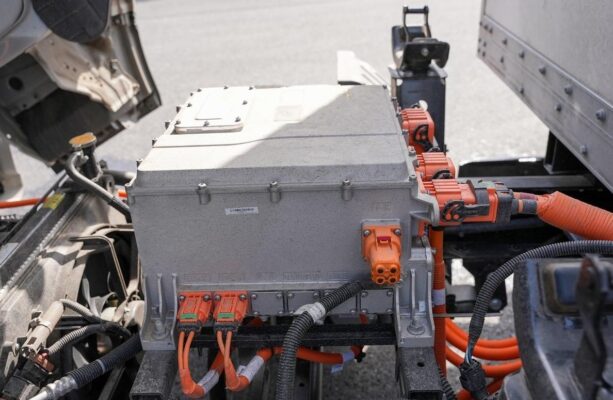As a relatively straightforward and commonly utilized special vehicle, dump trucks typically operate in tandem with excavators or loaders. Consequently, there are numerous minutiae that warrant attention during actual operation. To enable car friends to pilot dump trucks safely, the editor has collated several key points that demand vigilance during operation.

-
Dump trucks generally harness diesel engine power. They should idle for a brief period after ignition, and commence motion only when the water temperature ascends to 45 degrees. This pre-start idling period allows the engine components to warm up uniformly, reduces friction and wear, and enhances the engine’s operational efficiency and lifespan.
-
Prior to initiating the vehicle, observe whether the lifting switch or operating lever is in the off position. Switch on the signal light under the precondition that the road is safe and unobstructed, and commence in first gear. Subsequently, after confirming the absence of anomalies through the rearview mirror and the rear window of the cab, shift to second gear and then to third gear for regular driving. It is essential to conduct these checks meticulously to ensure a smooth and safe start.
-
Throughout the driving process of the entire vehicle, select the appropriate gear in accordance with the road conditions. This helps prevent the engine from operating under prolonged overload, which can lead to excessive fuel consumption, reduced engine performance, and potential mechanical failures. Simultaneously, the driving conditions can also offer cues regarding the status of the materials within the cargo box.
-
During the loading process of the dump truck, it is crucial to keep the load within the rated capacity. Exceeding this limit can potentially inflict damage on the steel plates, girders, axles, and other components when the vehicle traverses sections with subpar road conditions. This not only compromises the vehicle’s structural integrity but also poses significant safety risks.
-
During the unloading process, the staff should continuously monitor the degree and direction of the inclination of the cargo box. In the event that one side of the wheel sinks, promptly lower the cargo box. This proactive monitoring and prompt response are essential to prevent rollovers and other accidents during the unloading operation.

There are still many details that need to be heeded during the vehicle usage process. The vehicle owner should acquire a comprehensive understanding of the correct operation methods throughout the vehicle operation process in order to guarantee the safety of the driving process.
One often overlooked aspect is the proper handling of the clutch. When shifting gears, the clutch should be depressed fully and smoothly to avoid sudden jolts or gear grinding. This not only prolongs the lifespan of the clutch but also ensures a seamless gear transition, contributing to a smoother driving experience.
The braking system is another critical component that requires precise operation. Frequent and sudden hard braking can lead to excessive wear on the brake pads and discs, reducing their effectiveness over time. Instead, drivers should anticipate stops and apply the brakes gradually, allowing for a more controlled deceleration.
When maneuvering through curves, it is essential to reduce speed appropriately. The high center of gravity of dump trucks makes them more prone to rollovers if taken at high speeds. Maintaining a cautious speed and smooth steering input helps maintain stability and prevent accidents.
Regular inspection of the vehicle’s suspension and tires is also of paramount importance. A well-functioning suspension system absorbs shocks and ensures a stable ride, while properly inflated and undamaged tires provide optimal traction and handling.

Let’s consider a real-life scenario where a driver failed to adhere to the correct operation procedures. During unloading, he neglected to monitor the cargo box’s inclination closely. As a result, when one side of the vehicle encountered a soft spot, the cargo box tilted severely, causing the vehicle to tip over and resulting in significant damage and potential injury.
Another example could be a driver who constantly overloaded the dump truck during loading operations. This excessive stress on the vehicle’s components led to premature failure of the axles and suspension, causing frequent breakdowns and costly repairs.
In contrast, a driver who followed all the correct operation guidelines not only ensured the safety of his operations but also extended the lifespan of the vehicle, reducing maintenance costs and maximizing operational efficiency.
In addition to the driver’s actions, the role of regular training and education cannot be underestimated. Vehicle owners and operators should undergo periodic training sessions to stay updated on the latest safety regulations and best operating practices.

Advanced technologies are also making their way into dump truck operations. For instance, some modern dump trucks are equipped with electronic stability control systems that can automatically adjust braking and engine power to maintain stability in challenging situations. Familiarity with such technologies and their proper utilization can further enhance safety and performance.
The maintenance of the vehicle’s electrical system is another aspect that demands attention. Faulty wiring or a malfunctioning alternator can lead to electrical failures, affecting various components such as lights, instruments, and even the engine’s control systems.
To sum up, the correct operation of dump trucks encompasses a wide range of factors, from pre-start checks and gear shifting techniques to load management and post-operation inspections. By adhering to these principles and remaining vigilant at all times, drivers and vehicle owners can ensure safe, efficient, and reliable operations.
In the future, as the demands of the construction and transportation industries continue to evolve, the standards for dump truck operation are likely to become even more stringent. This will require a continuous commitment to improvement and adaptation to new technologies and regulations.

Furthermore, the development of autonomous and semi-autonomous features in dump trucks may present new challenges and opportunities. Operators will need to be well-versed in understanding and overseeing the operation of these advanced systems to ensure their safe and effective deployment.
In conclusion, the correct operation of dump trucks is a complex but essential task that requires a combination of knowledge, skills, and a strong sense of responsibility. By upholding the highest standards of operation and maintenance, the dump truck industry can continue to thrive while ensuring the safety of personnel and the efficient movement of goods.